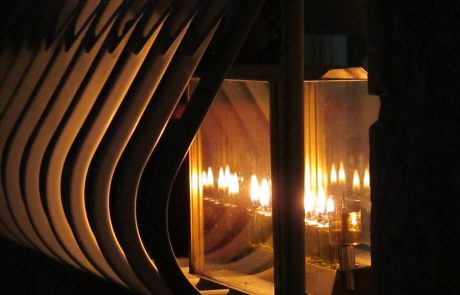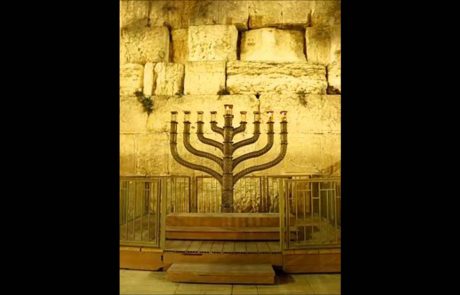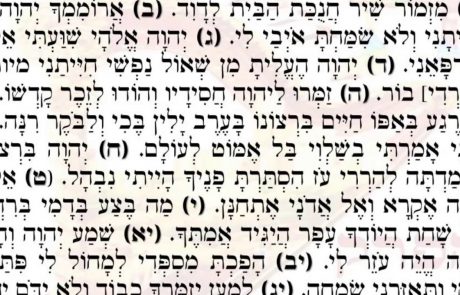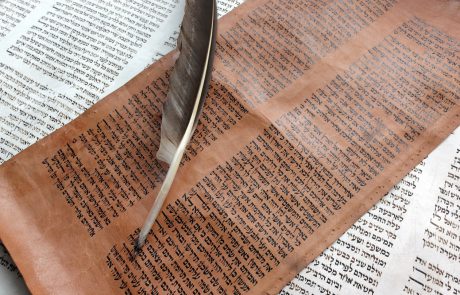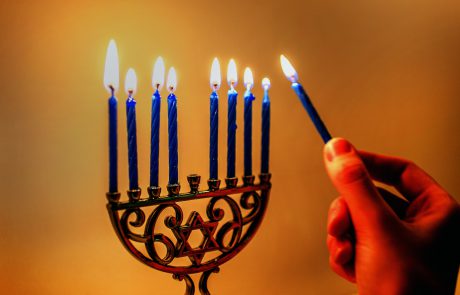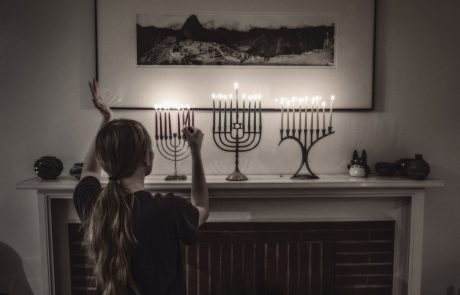Archive for November 2018
Hasidic Kavvanah (Intention) for Lighting the Hannukah Candles
This link opens up the Hebrew and English text of a Hasidic prayer that can be recited prior to the lighting of the Hannukah candles, composed by Rebbe Tzvi Elimelech Spira of Dinov
Al HaNissim for Hannukah
Al HaNissim is a short paragraph added to the Amidah prayer and the Grace After Meals on Hannukah, thanking God for the miraculous redemption celebrated on this holiday and briefly retelling the story of
Psalm 30: The Daily Psalm of Hannukah
This audio recording presents Chazan Maor Cohen singing Psalm 30 with a Moroccan melody. Allegedly composed by King David to be sung when his son, King Solomon, dedicated the Temple, this psalm of thanksgiving is
BICOM Briefing | Causes and consequences of the Six-Day War (1967)
To mark the 50th anniversary of the Six-Day War in June this year, BICOM’s research team has produced a briefing analysing the causes and consequences of the conflict.
Toward a New Paradigm for Addressing the Israeli-Palestinian Conflict
In this paper, DAVID MAKOVSKY and DENNIS ROSS recommend that the United States should work to preserve the potential for a two-state outcome in the future by reaching an understanding with Israel on
Morrocan Hannukah Candle Lighting Blessings & Songs
This post presents the Hannukah candle lighting blessings and songs sung according to Moroccan tradition by Rabbi David Kadoch. The first video begins with the two blessings recited upon lighting the Hannukah candles, followed
Humanistic Hannukah Lighting Blessings & Ceremonies
This post offers several different home services for the Hannukah candle lighting, including blessings, intentions, readings and songs that reflect the values and beliefs of Humanistic Judaism. Founded in 1963 by Rabbi Sherwin T.
The Scroll of Antiochus
This document provides the full English and Hebrew translations of Megillat Antiochus (The Scroll of Antiochus), an ancient historical account of the story of Hannukah, originally written in Aramaic. For generations, this scroll
Text of Traditional Hannukah Candle-lighting Blessings & Songs
This document presents the Hebrew, English and transliterated texts of the blessings recited upon lighting the menorah, as well as the songs traditionally sung at this time, “Hanerot Halalu” and “Maoz Tzur.” This
Hanukkah Blessings & Hanerot Halalu with Feminine God Language
This post presents alternative versions of “Hanerot Halalu,” as well as the blessings recited upon lighting the menorah. As explained in more detail below, several alterations were made to “Hanerot Halalu” in order to emphasize

